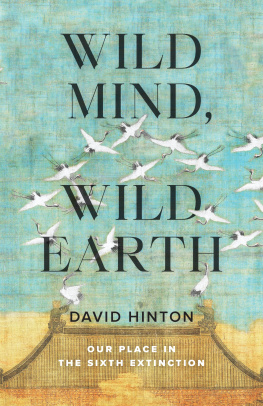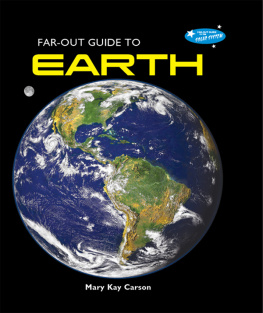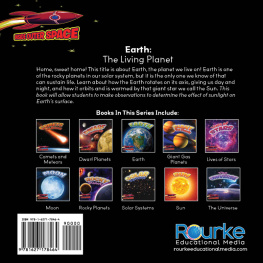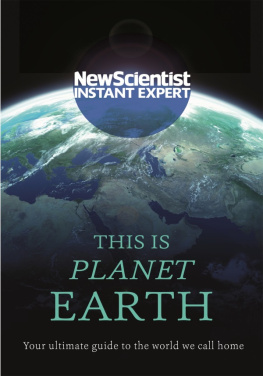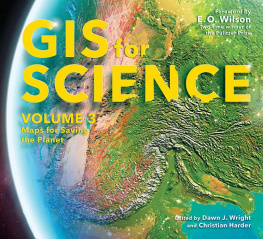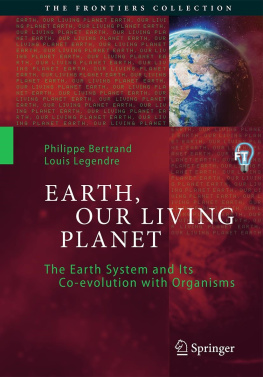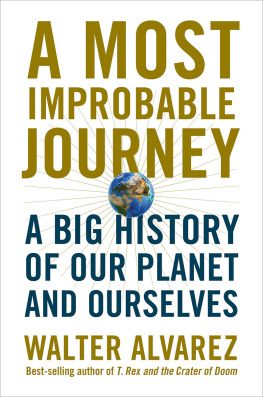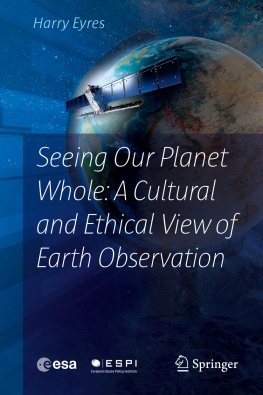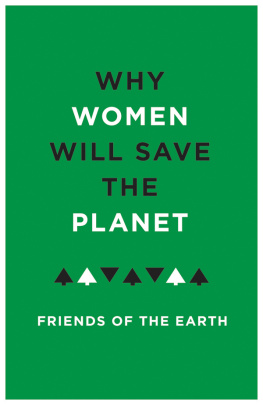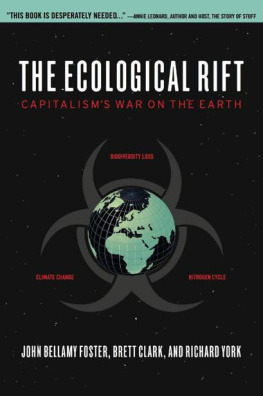Thank you for downloading this Scribner eBook.
Join our mailing list and get updates on new releases, deals, bonus content and other great books from Scribner and Simon & Schuster.
C LICK H ERE T O S IGN U P
or visit us online to sign up at
eBookNews.SimonandSchuster.com
We hope you enjoyed reading this Scribner eBook.
Join our mailing list and get updates on new releases, deals, bonus content and other great books from Scribner and Simon & Schuster.
C LICK H ERE T O S IGN U P
or visit us online to sign up at
eBookNews.SimonandSchuster.com

Scribner
An Imprint of Simon & Schuster, Inc.
1230 Avenue of the Americas
New York, NY 10020
www.SimonandSchuster.com
Copyright 2016 by David Biello
All rights reserved, including the right to reproduce this book or portions thereof in any form whatsoever. For information, address Scribner Subsidiary Rights Department, 1230 Avenue of the Americas, New York, NY 10020.
First Scribner hardcover edition November 2016
SCRIBNER and design are registered trademarks of The Gale Group, Inc., used under license by Simon & Schuster, Inc., the publisher of this work.
For information about special discounts for bulk purchases, please contact Simon & Schuster Special Sales at 1-866-506-1949 or .
The Simon & Schuster Speakers Bureau can bring authors to your live event. For more information or to book an event, contact the Simon & Schuster Speakers Bureau at 1-866-248-3049 or visit our website at www.simonspeakers.com.
Interior design by Jill Putorti
Jacket Design by Jaya Miceli
Jacket Photograph Martin Barraud/OJO Images/Getty Images
Library of Congress Cataloging-in-Publication Data
Names: Biello, David, author.
Title: The unnatural world : the race to remake civilization in Earths newest age / David Biello.
Description: New York : Scribner, an Imprint of Simon & Schuster, Inc. [2016]
Identifiers: LCCN 2016018491 (print) | LCCN 2016031269 (ebook) | ISBN 9781476743905 | ISBN 9781476743929 (ebook) | ISBN 9781476743929
Subjects: LCSH: Human ecology. | Nature and civilization. | Global environmental change. | NatureEffect of human beings on. | Civilization, Modern21st century.
Classification: LCC GF75 .B54 2016 (print) | LCC GF75 (ebook) | DDC 304.2 dc23
LC record available at https://lccn.loc.gov/2016018491
ISBN 978-1-4767-4390-5
ISBN 978-1-4767-4392-9 (ebook)
For my own Anthropocene working group and inspirations: Beatrice, Dan, Desmond, Elizabeth, and Shii Ann
Contents
The Overview
T he view from space changes people.
Just before Christmas 1968, William Bill Anders and two other men spun around the moon in the prosaically named Lunar Module, travelers on a course as far from Earth as any human has ever been.
Apollo 8 launched from Cape Canaveral on the morning of December 21. As Anders, Commander Frank Borman, and Module Pilot James Lovell blasted through and beyond the atmosphere, Earth dwindled from planet-size to basketball-size. The astronauts busied themselves with the flight checklist. By the time eleven hours had passed, the planet appeared no bigger than a baseball, and within three days the astronauts had floated all the way to the moon.
At precisely the moment NASA planners had predicted, this lonely manned module in the vastness of space lost radio contact. The astronauts passed behind the moon, and the entire Earth disappeared. The men circled our planets steadfast companion three times, diligently recording its pockmarked, colorless surface, littered with the blast craters and detritus of bombarding asteroids. From roughly 100 kilometers up, the moon didnt look like much. It reminded Anders of a deserted beach that had been churned by footprints during a volleyball game or, as he put it later in the flight, beach sand darkened by the cold embers of bonfires, which earned him hate mail from poets.
Then, on their fourth orbit, a revelation. Before the Apollo 8 astronauts eyes, home slid out from behind the horizonsmall enough to be blotted out by a thumb.
Oh my God! Look at that picture over there! Anders cried out. What he caught glimpse of, as Borman later described, was simply the most beautiful, heart-catching sight of their lives, one that sent a torrent of nostalgia, of sheer homesickness, surging through them.
This, Anders thought, must be what God sees.
Anders raised his cameraover the protest of Borman, who fretted about taking an unscheduled photoand snapped the picture that would make this mission famous and change the human perspective on the world forever.
As the British physicist Fred Hoyle predicted back in 1950, a picture that revealed the whole Earth shining in the empty darkness of space would unleash a new idea as powerful as any in history. That idea is now known as the Anthropocene, the notion that humanity has become a world-changing force of nature. That Earth is in the grip of human nature.
* * *
Most of us have never been to space and, despite the best efforts of industrialists and dreamers like Elon Musk, most of us never will. The closest Ive come is on flights across continents, looking over green irrigation circles blooming in the desert or the snowy wastes that edge the Arctic. But anyone with an Internet connection can now enjoy NASA pictures and Google Earth views. Only twenty-four men have left Earths orbit, but satellites have made millions of us voyeurs of the planet.
The first such group was actually a television audience, those in the United States and elsewhere who tuned in on December 22, 1968, when the Apollo 8 astronauts turned a camera through the window for a live view. As Earth appeared on the television screen, Anders told this audience, Youre looking at yourselves as seen from 180,000 miles out in space.
Anders was not an especially religious man, but during a subsequent Christmas Eve broadcast from space, he left viewers with this message from the Bible, the opening lines of Genesis: In the beginning God created the heavens and the earth. And the earth was without form, and void; and darkness was upon the face of the deep. And the spirit of God moved upon the face of the waters. And God said, Let there be light, and there was light. And God saw the light, that it was good and God divided the light from the darkness.
Like a blue-and-white jewel set in the firmament, Earth gleams in the inky darkness of spaceour only home. Just as looking in the mirror can reveal our own flaws and strengths, looking back at the planet provided a fresh perspective. We humans are fragile animals, like most life on Earth larger than a single cell. We are trapped, utterly reliant on our spaceship-planet; without it death creeps in from the cold, indifferent void. Even so, it may not be space that kills us in the end, though theres always the chance of another obliterating asteroid like the one that ended the reign of the dinosaurs. Instead, like the Soviet dog Laika, the first animal to orbit Earth, we may simply find ourselves on a spaceship that can no longer support us.
* * *
Setting eye on Earth for the first time helped strengthen the nascent environmental movement, a kind of societal immune response to industrial effluents, off-gases, and other depredations of the modern world unleashed by the abundant energy stored in fossilized sunshine. The picture, later known as Earthrise , humbled those who saw it, a scrim of white clouds obscured even the greatest works of humanity. The nature photographer Galen Rowell called it the most influential environmental photograph ever taken.
Next page

